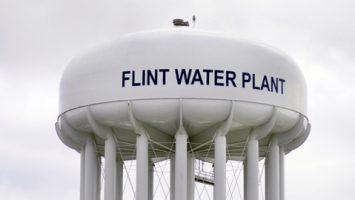
One by one, more cities are figuring out what they need to do to become truly connected, smart cities. This month Phoenix found success with its strategy to build a coalition of community leaders from different sectors, emulating the city of Columbus, Ohio, and won a $6 million Advanced Transportation And Congestion Management Technologies Deployment (ATCMTD) grant for its Loop 101 Mobility project.
Loop 101 is a major Phoenix semi-beltway that circles much of the Phoenix Metropolitan Area, connecting several suburbs of Phoenix, including Tolleson, Glendale, Peoria, Scottsdale, Mesa, Tempe, and Chandler. The Phoenix metro area has been growing faster than any other U.S. city and now has more than 4.5 million residents, many of whom live in these suburbs.
The grant will be used to improve safety and existing capacity on the Phoenix area’s Loop 101 corridor by deploying technologies that support Integrated Corridor Management (ICM) systems, public transportation and other real-time information technologies.
The department of transportation defines FHWA’s ATCMTD program as one that “funds cutting-edge technologies that are ready to be deployed to enhance existing traffic capacity. This year, the program funded 10 projects valued at nearly $54 million that that range from advanced real-time traveler information for drivers, public transit riders and freight shippers, vehicle-to-infrastructure communications that will enhance safety and pave the way for autonomous vehicles, and congestion-relieving traffic management systems.”
Last year the city applied for a grant and was denied. This year, said Dominic Papa, Executive Director & Co-Founder of the Institute for Digital Progress:
“We knew that by bringing together a group of leaders from different sectors whose sole focus was on getting shit done that we could make an impact. That we could start to swing the momentum in our favor and collectively drive our region to the forefront of technology and innovation. That the next time a grant was released, we could not only compete for it, but win it.”
Among the community leaders working for the grant were State Senator Bob Worsley, Maricopa County Supervisor Bill Gates, Scottsdale and Mesa mayors Jim Lane and John Giles, Marisa Walker of the Arizona Commerce Authority, and teams from Arizona State University, Cisco and Uber.
“We were able to mobilize our Council and provide ADOT/MCDOT with assistance on the content of their application as well as public letters of support for their proposal. This year, instead of submitting an application alone, ADOT/MCDOT submitted it in collaboration with the Smart & Connected Council. It proved successful. Together we WON.”
The Institute for Digital Progress is an Innovation Partner for US Ignite and the Phoenix Smart Gigabit Community Initiative. Smart Gigabit Communities represent coalitions of network operators, community anchor institutions like hospitals and universities, municipalities, and non-profit organizations. Using sensors and wireless networks that enhance data collection and communication, these organizations develop smart gigabit applications to community needs, such as transportation, education, workforce development, public safety and community health.
As a member of the Smart Gigabit Communities, Phoenix not only has access to the applications it develops but also those of the 15 initial project communities and 55 research universities also on the network.


